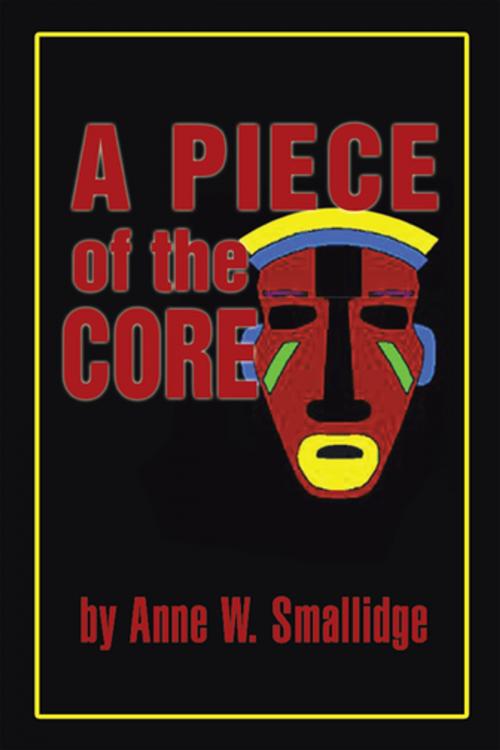| Author: | Anne W. Smallidge | ISBN: | 9781462815340 |
| Publisher: | Xlibris US | Publication: | November 10, 2010 |
| Imprint: | Xlibris US | Language: | English |
| Author: | Anne W. Smallidge |
| ISBN: | 9781462815340 |
| Publisher: | Xlibris US |
| Publication: | November 10, 2010 |
| Imprint: | Xlibris US |
| Language: | English |
Zelda is fifty years old when she takes a major step in her life. She quits her job, rents her house, sells her car and says goodbye to her three young adult children and their children, and joins the Peace Corps. The time is 1980 when Zelda travels to Africa, a completely different part of this planet. To the other side of the world, the developing world where she experiences many challenges. She is assigned to a tiny village upriver, two hundred miles from the capitol, where the local people had never before known a white person. Her two room house was not yet completed, so she stays in the home of the dresser dispenser, Barbar, and his family for several days. She does not know the Mandinka language well enough to understand what is being said. She meets the next door neighbor, Kumba, who becomes her best friend. Neither know the others language. Once a week she worked in the maternal/infant health clinic when the trek team arrives from Bansang. She is disturbed by the way her counterpart, Ida treats the mothers. It appears to Zelda that Ida is charging for the free service. Her little two room house had no running water nor does she have a well. Kumba carries water from the river and pours it into Zeldas jardinire. She uses chlorine tablets to purify the river water. She has no toilet or latrine for a few days. So, she has to run to Barbars latrine a few houses away until a latrine is dug and a bamboo fence surrounding it is built. She does not mind using candles, although her neighbors are not happy when she uses more than one at a time. It is extravagant and unnecessary. . On her way to Karnataka she purchases a bamboo bed, four bamboo chairs, and a straw mattress from a roadside furniture maker. This furnishes her home. Thee of the young boys bring a baby monkey to her. She reluctantly accepts it once the boys bring an orange crate, from god knows where, to use as a bed for the little thing. She names him Sangio, the Mandinka word for rain. Sangio gives her much pleasure in this difficult place. A long story ensures with a sad ending. On night while on her way to Karantaba the ambulance she is riding in completely drops into a sink hole. A torrential rain is beating down in the middle of the bush. Zelda and the other eight passengers crawl out. The ambulance lies deep in the hole, sideways, with the drivers side door facing up and out. They are stranded in knee deep water in the middle of the bush with a newborn baby and mother, and several others who had been discharged from the hospital in Bansang. They are rescued by Farkamou, and his tractor. Zelda meets people she never forgets. Zelda loses a great deal of weight due to the lack of available food, extreme heat and loneliness. She becomes infected with every scratch or cut. Zelda is transferred to a less environmentally challenging. assignment. To Jambanjelly, nearer to the sea. In Jambanjelly, she becomes a part of the village and the family she lives with, the Chief and his three wives. There is a coup detet, and Zelda is evacuated to Senegal with the other volunteers. And returned in a week. This book covers the first year of Zeldas time in The Gambia. It ends on a New Years Eve night with several of her Peace Corps and Gambian friends on a deserted quiet beach which stretched forever into the night.
Zelda is fifty years old when she takes a major step in her life. She quits her job, rents her house, sells her car and says goodbye to her three young adult children and their children, and joins the Peace Corps. The time is 1980 when Zelda travels to Africa, a completely different part of this planet. To the other side of the world, the developing world where she experiences many challenges. She is assigned to a tiny village upriver, two hundred miles from the capitol, where the local people had never before known a white person. Her two room house was not yet completed, so she stays in the home of the dresser dispenser, Barbar, and his family for several days. She does not know the Mandinka language well enough to understand what is being said. She meets the next door neighbor, Kumba, who becomes her best friend. Neither know the others language. Once a week she worked in the maternal/infant health clinic when the trek team arrives from Bansang. She is disturbed by the way her counterpart, Ida treats the mothers. It appears to Zelda that Ida is charging for the free service. Her little two room house had no running water nor does she have a well. Kumba carries water from the river and pours it into Zeldas jardinire. She uses chlorine tablets to purify the river water. She has no toilet or latrine for a few days. So, she has to run to Barbars latrine a few houses away until a latrine is dug and a bamboo fence surrounding it is built. She does not mind using candles, although her neighbors are not happy when she uses more than one at a time. It is extravagant and unnecessary. . On her way to Karnataka she purchases a bamboo bed, four bamboo chairs, and a straw mattress from a roadside furniture maker. This furnishes her home. Thee of the young boys bring a baby monkey to her. She reluctantly accepts it once the boys bring an orange crate, from god knows where, to use as a bed for the little thing. She names him Sangio, the Mandinka word for rain. Sangio gives her much pleasure in this difficult place. A long story ensures with a sad ending. On night while on her way to Karantaba the ambulance she is riding in completely drops into a sink hole. A torrential rain is beating down in the middle of the bush. Zelda and the other eight passengers crawl out. The ambulance lies deep in the hole, sideways, with the drivers side door facing up and out. They are stranded in knee deep water in the middle of the bush with a newborn baby and mother, and several others who had been discharged from the hospital in Bansang. They are rescued by Farkamou, and his tractor. Zelda meets people she never forgets. Zelda loses a great deal of weight due to the lack of available food, extreme heat and loneliness. She becomes infected with every scratch or cut. Zelda is transferred to a less environmentally challenging. assignment. To Jambanjelly, nearer to the sea. In Jambanjelly, she becomes a part of the village and the family she lives with, the Chief and his three wives. There is a coup detet, and Zelda is evacuated to Senegal with the other volunteers. And returned in a week. This book covers the first year of Zeldas time in The Gambia. It ends on a New Years Eve night with several of her Peace Corps and Gambian friends on a deserted quiet beach which stretched forever into the night.















